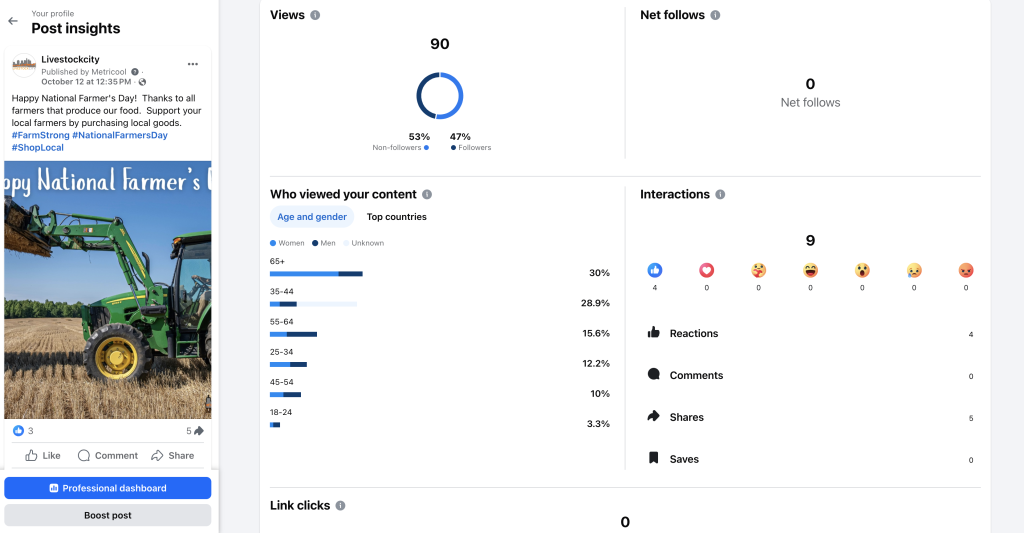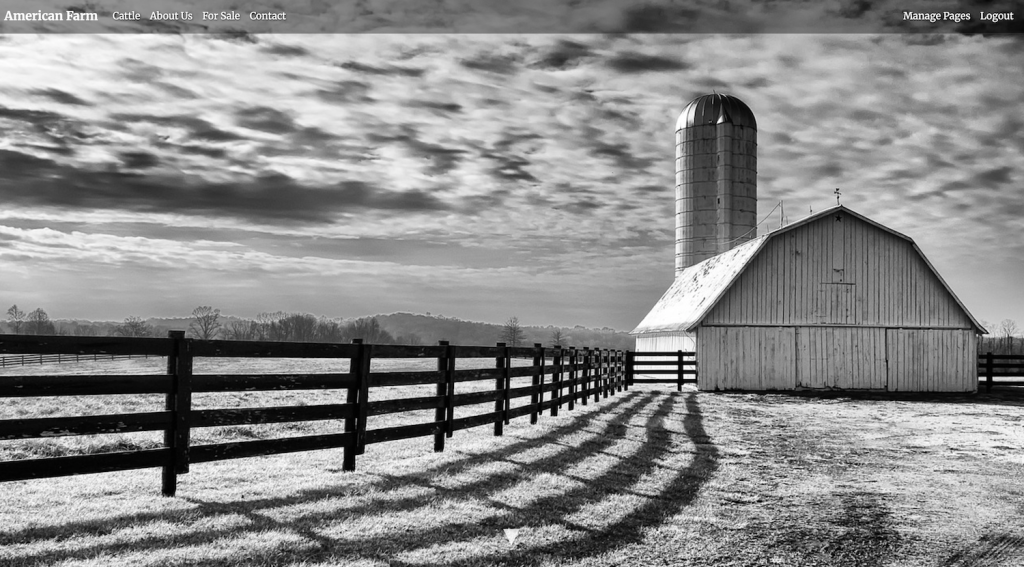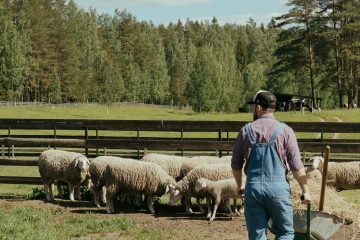For nearly 20 years now, many farms have substituted having a website for a Facebook page instead. We understand why – it is fast and convenient, it does not require any special skills to set up, and of course it is free too (sort of — we’ll explain later). It is a great, even necessary, tool to use for your farm business. But is it enough? Does it actually replace having a website? We argue that a Facebook page by itself is NOT enough, and you need a website too. Below we list the reasons why a Facebook page is not enough for your business.
Not Everyone is On Facebook
If you want maximum exposure on the internet for your business, you won’t get it if you are just using a Facebook page, and that also includes Instagram, X, TikTok, or any other social media you are using (It also includes LivestockCity social media, although 100% of your followers will see every post you make, unlike other social media sites). There are some people not on any social media, which you will never reach, so you are already at a disadvantage over farms that also have websites.
Facebooks limits who sees your posts
You may have paid Facebook to build up your followers (we did that too!) thinking what a great marketing tool this will be! You will get 1000 or 5000 followers on your farm page only to find out when you make posts, about 50 people saw it (and likely not all people interested in your farm). If you want more of your followers to see your posts, then you need to pay to boost those posts. Pay for followers, then pay for the followers to see your posts — what a rip off! The more sales pitchy your posts are, the more limited they will be. We have seen this trend with our own Facebook posts. If you have your own website, you don’t have to worry about these limitations. As mentioned before, we think you should have a Facebook page, but by itself, it is not anywhere near optimal. It is just a supplemental piece of the puzzle. If you have your own website, you don’t have to worry about these limitations.

Over 2600 followers, and only 90 views! Only half were from actual followers, 1.6% of followers! And this was not really a post promoting LivestockCity.
Your Facebook page is Not Owned By You
Your Facebook page is subject to whole bunch of Facebook rules, and they can change their policies at any time. They could even drastically change the page policy or even suspend or lock your account for any reason (maybe someone files a complaint about your content, etc. , who knows??). It has happened to others. But with a website, you don’t have to worry about such things because you own it.
Facebook Pages are Limited Information Compared to Websites
Information on a Facebook page is presented in a fragmented way and can easily frustrate the viewer trying to find information on your animals. No wonder when viewers land on a Facebook page, the first thing they do is go to the About section to see if there’s a website. Why? Because they want way more information than your Facebook page offers. Here’s another thing a website can offer: detailed information about animals for sale, foundation herd members, farm events, and etc. Try finding animals for sale on a Facebook page! It’s more like scrolling through post after to post to find an occasional animal here or there. It’s frustrating to the viewer and not surprising if they decide to move on to another breeder that does have a website.
Search Engines can be Problematic with Facebook Pages
If you just on Facebook or Instagram, Google will find your page but if some searches “horse breeders in Pennsylvania” and you are a horse breeder in Pennsylvania, you might not be found. If someone searches your farm name in Google, your Facebook page will probably show, but that’s only good if someone has already heard of you. You are not being found by those that don’t know you.
How is LivestockCity Different Than Facebook?
This is just a side note, as this article is mostly about why you need a website, but we wanted to point out some differences between Facebook and LivestockCity. This might become an article at a later time, but a lot of the drawbacks mentioned about Facebook are not the same with LivestockCity. The LivestockCity pages (similar to Facebook pages) DO allow the farmer to display their animal details on the profile page. And as mentioned before, we do not limit the views to posts. If you have 100 followers, ALL of them will see your post. As LivestockCity grows, it will become necessary to be on the platform. If you have not joined, which is free to do, now is the time to do so. By the way, we have noticed that our users’ pages are being picked up in search engines.
Your Competitors (at least some of them) Have A Website
Let’s not pretend that we as livestock farmers don’t have competition. Of course we do, even if it is often friendly competition. After all, we go into show rings to compete to see who’s got the best animals. Two things can be true at the same time – some of your best friends are livestock farmers and also your competition. Competition for what? For sales of course! You need sales to thrive, let’s not forget this. Nothing is wrong with a little friendly competition, but to compete, you 100% need a website.
Conclusion
While we advocate for having a Facebook page, it is not enough to find all the customers you could reach. You started a farm for income, and your goal is to sell animals, food products, agri-tourism, farm services, etc. If that sounds like you and you don’t have a website, you should definitely get one! If you don’t have a website right now, why don’t you? Making websites is something we do through our site Llama Genius, and for our blog readers, we are offering a special right now. Mention this article, and we will create a website for you for $150, and payments can be made in two equal payments. Your website will contain a login section that will allow you edit your pages and even add new ones. We handle the initial design and set up for you. Contact us to take advantage of this limited time offer, subject to end at any time. Look for the next upcoming article that will be about getting your own website and more details on what we offer.

A website example that we made.


